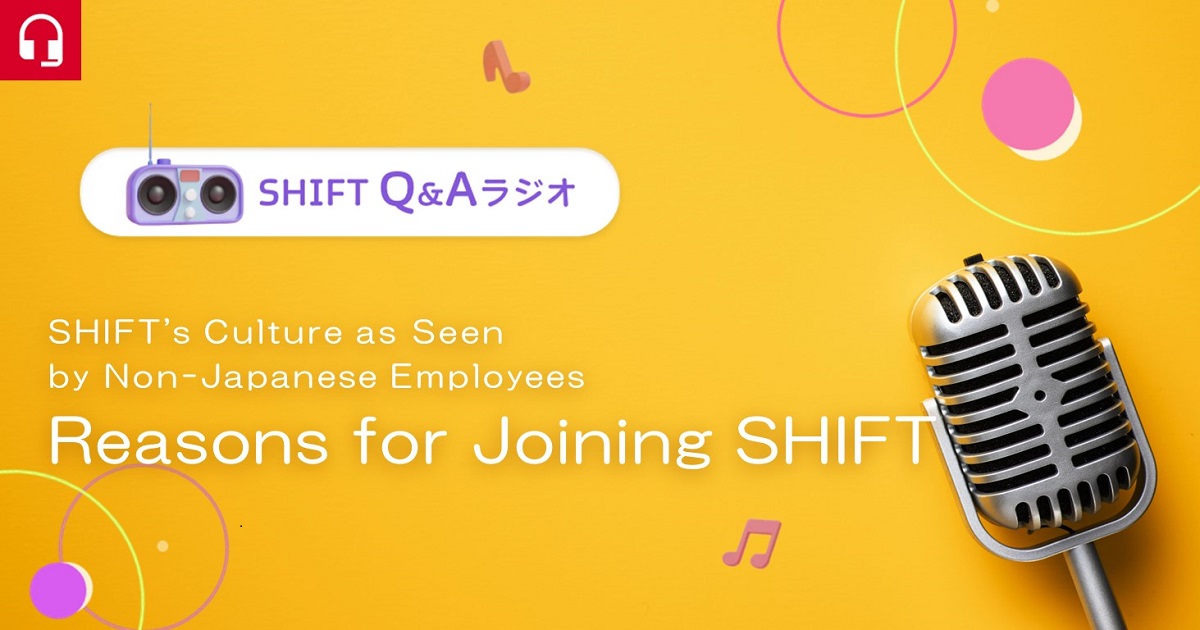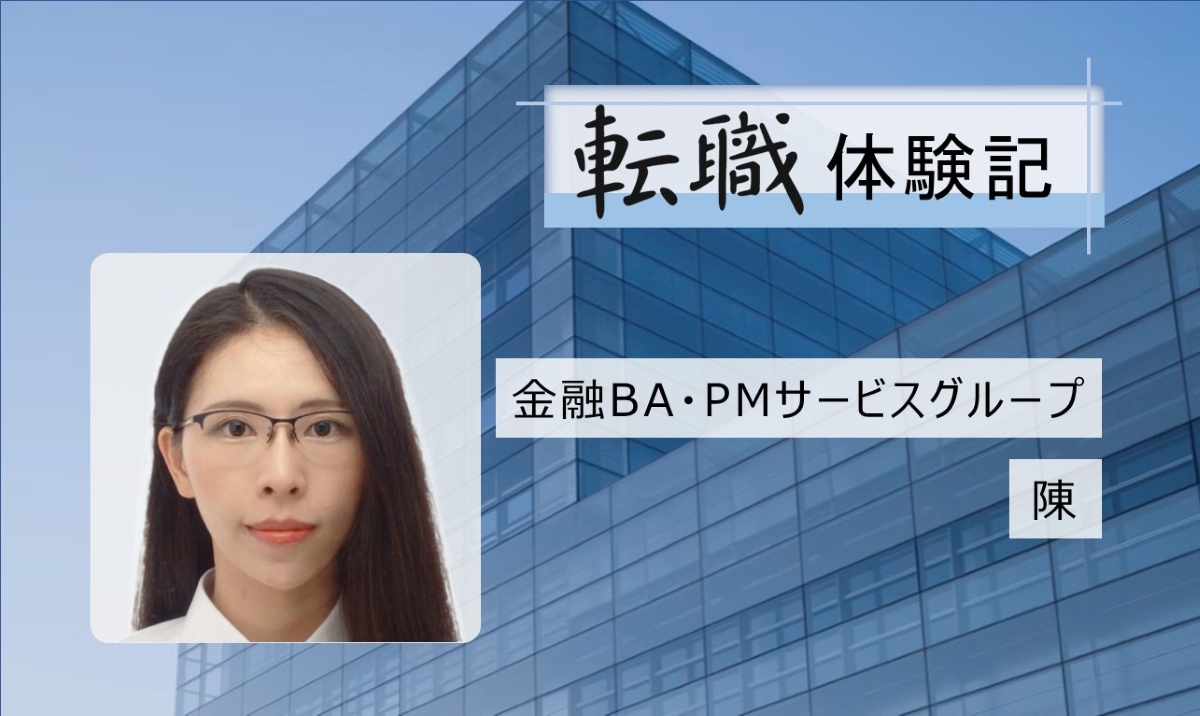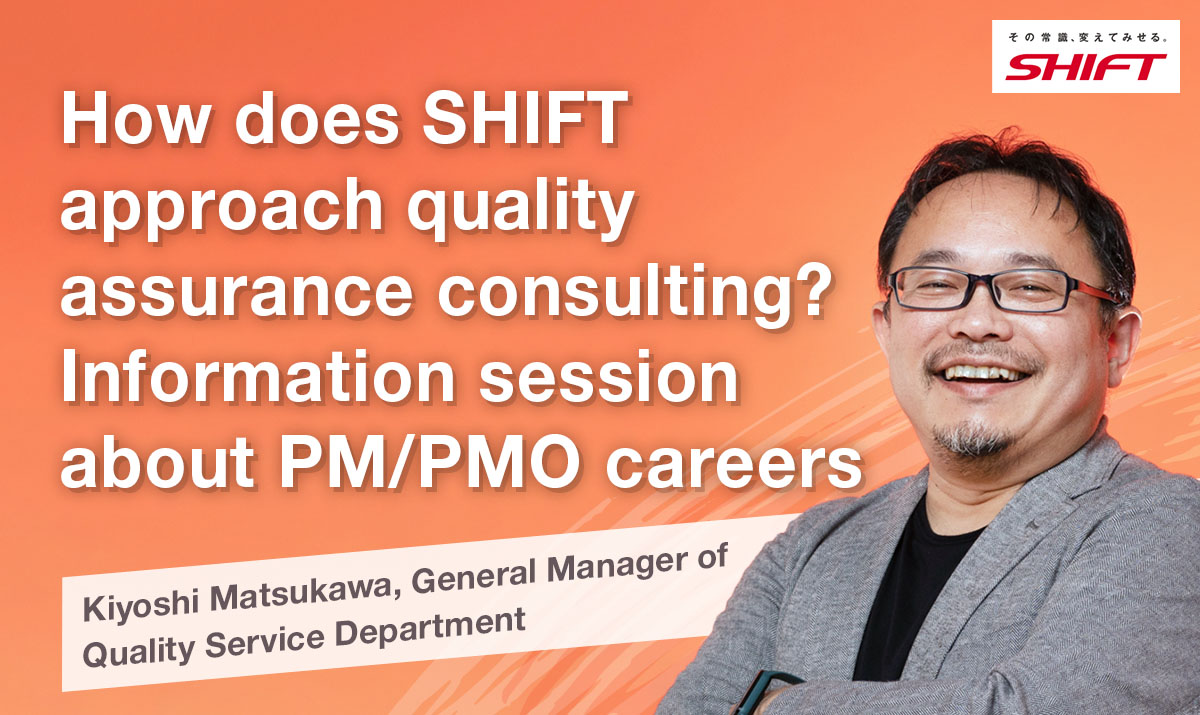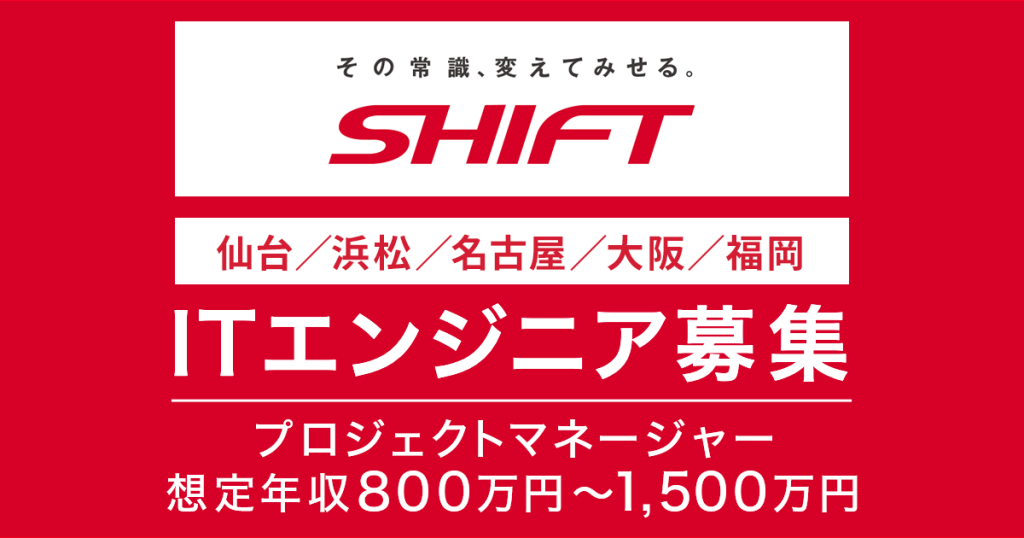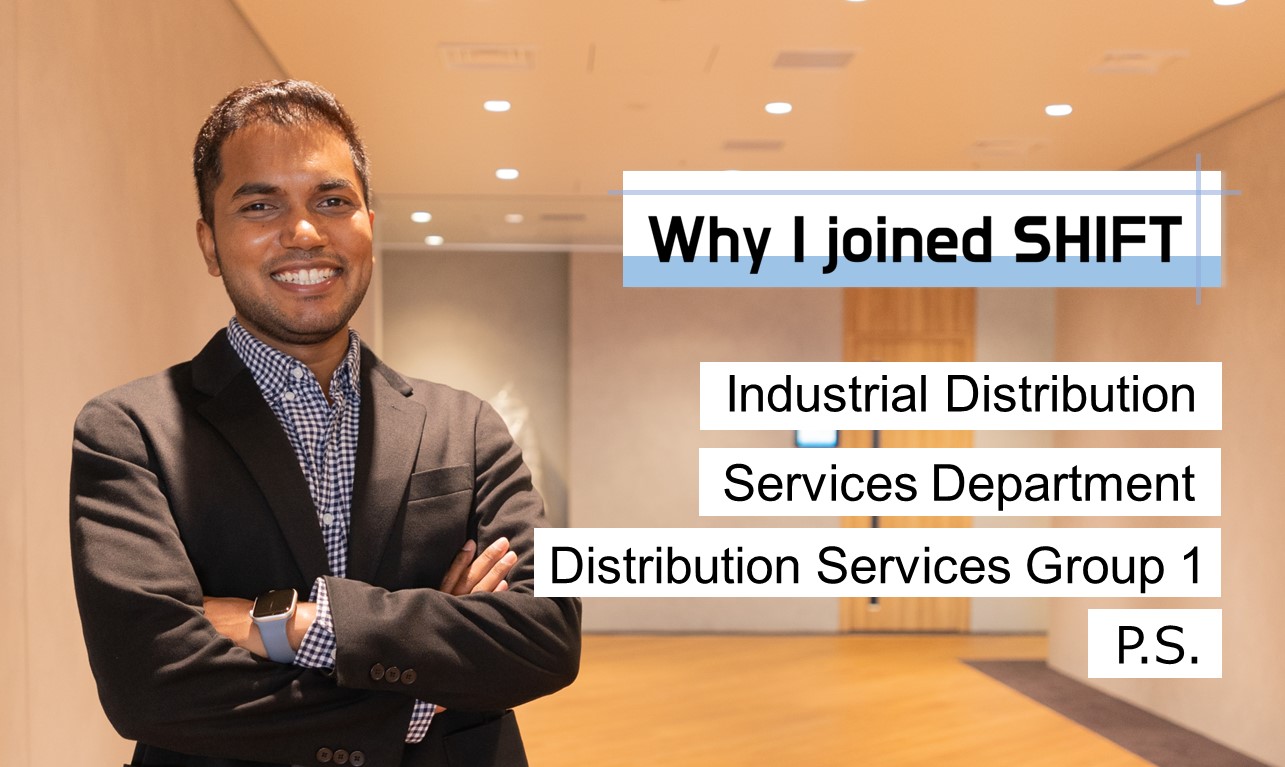
From SE to PMO within a year: how clear promotion criteria and a supportive culture helped him achieve his goals
P.S. began his career in India and continued working as a software engineer after relocating to Japan.
Seeking opportunities to develop his career as a PM, he discovered SHIFT and found the environment was an ideal match for his professional goals. He decided to join the team and aimed to become a PMO by the end of his first year.
In this interview, P.S. shares his career journey, what he learned along the way, and how SHIFT helped him achieve this ambitious goal.
-

Service&Technology Department Logistics & Distributions Service Unit Logistics Service Group1 P.S.
Originally from India, P.S. graduated from university with a degree in engineering. He joined the local branch of a Japanese company in 2016, where he worked in software development, and moved to Japan in 2019. After working on projects at a major temporary staffing company, he joined SHIFT in 2020. As a PMO, he is responsible for all testing processes, including requirement analysis of multiple projects, planning, design, implementation, operation, and release of various tests.
-
22歳
Joined the Indian branch of a Japanese company
Focused on web application development
-
25歳
Moved to to Japan
Continued working in web application development at a Japanese company
-
26歳
Joined SHIFT
End-to-end test leader for projects in the distribution industry
-
27歳
PMO in the distribution field
Progressed to a project management role
-
29歳
PMO in the distribution field
Led multiple projects to success
Contents:
Pursuing a career in project management
─ After graduating from university, you joined the Indian subsidiary of a Japanese company, correct?
Yes. I love the beautiful scenery and four seasons in Japan. I joined a Japanese company hoping for the chance to work here someday.
Later, I realized that I would only be able to grow my career as a member of the offshore development team in India. So, in 2019, I came to Japan and started working as a dispatched engineer.
─ Were there any changes in the type of work you were doing?
In that position, I was just one member of the development team. Although I came to Japan with an interest in project management, I had a narrow scope, limited to specific technologies and modules.
I was not fortunate enough to have a role where I could grasp the entire project.
Additionally, the technologies I worked with were mainly EJB frameworks and Oracle JDeveloper.
When I worked in India, I was exposed to new technologies such as Java Spring MVC, Sitecore, and JavaScript, so I began to feel that I was not progressing in my career.
─ It sounds like your career development did not go as you had hoped after arriving in Japan.
That’s right. However, around that time, I got the opportunity to manage two members of the team. I realized my skills had improved through progress management and other activities, so I decided to pursue a full-fledged career in the PM field.
I expressed my aspirations to the company, but it seemed difficult to make that transition internally. So, I started looking for a new job.
The importance of clear expectations and developmental goal-setting
─ What made you decide to join SHIFT? And what did you prioritize in your job search?
The three things I focused on were being able to pursue a career as a PM, finding an environment friendly to foreign nationals, and the opportunity to use my English skills.
It was challenging to find those roles because I was relatively new to Japan and had limited experience as a PM.
But SHIFT was different. I learned that if I wanted, I could gain PM experience after joining the company.
The HR team was outstanding. They gave me a detailed overview of the company and its operations, including examples of people who had become PMs and PMOs.
I could clearly envision how my career plan would play out. Seeing how rapidly employees can develop their careers at SHIFT was very appealing.

Another thing that stood out was the chance to meet an engineer at SHIFT who had also come to Japan from overseas.
This person explained the size of the projects they were working on in detail, the number of people they were managing, and how it was possible to work in English as part of a multinational team.
We also discussed concrete ways I could improve my Japanese skills, giving me a realistic picture of what it would be like if I joined the company.
One more thing that attracted me to SHIFT is how testing work would give me a bird’s eye view of the software business. This opportunity to gain a broad perspective was also a key factor in my decision to join the company.
─ You changed jobs to pursue a career as a PM, but did you set specific goals for yourself when beginning your new role?
I joined the company in October 2020 and was initially responsible for testing tasks, but I set a goal to become a PMO within a year. Then, in September 2021––about a year later––I achieved that goal.
Working in Japan, Japanese language skills are necessary. My experience in India was not directly applicable, and my management experience in my previous job was insufficient.
I thought it would probably take about five years to become a PM; I believe that I was able to advance my career very quickly at SHIFT.
─ Why do you think you were able to achieve your goal in just one year?
The job classification for PM was clear, so I did not have to wonder what actions would move me toward my goal or how my performance would be assessed.
At SHIFT, we set goals twice a year with our managers. If I were to say, “this is the salary level and job classification I want to reach,” my supervisor would present me with specific actions I needed to take.
From there, we worked backward to establish benchmarks to aim for by the mid-term review and checked my progress during our weekly 1-on-1 meetings. My manager worked alongside me until I reached my goal.
It also helped that all the project members were friendly. A supportive, psychologically safe environment where you feel free to ask questions is essential for growth.
The friendly and open atmosphere I felt when I was hired is still the same today.

Milestones as a global PMO using Japanese and English
─ When did you realize your growth as a PMO?
The first time I participated in a project as a PMO was a local payment gateway integration project in India as part of a global rollout for a distribution company.
I was telling the client that we would need to conduct UAT using many internet banking accounts when a member of the local Japanese IT team told me it would not be possible to arrange the required number of accounts based on the information they had.
It was a moment when I faced not only a language barrier but also a project management barrier.
From there, I created documents expressing the importance of UAT using past cases and quantitative data. I also coordinated with related departments in each country to adjust for insufficient resources.
With the support of my supervisor, I focused on moving forward one step at a time while getting the hang of project management.
At the same time, I continued to communicate with the person in charge, and eventually, we secured the necessary bank accounts for the local team.
From then on, whenever issues arose, we repeated our investigations and proposed solutions. We were able to release the project as scheduled.
─ Did you feel a sense of achievement for that initial project?
Yes, I did. It was the first project where I was communicating directly with the client. It was great to use Japanese and English to bring the project to a successful conclusion.
This project had members from nine countries, so if a problem occurred, it would affect many countries and teams; we needed to immediately identify the cause, think of a solution, and propose it.
Being able to respond quickly to issues is a skill that continues to help me now.
I also realized that we received similar questions from various countries, so we prepared reference documents that could be understood at a glance.
That way, when we receive inquiries from the local teams, we can resolve them promptly.
After the project’s completion, we were glad to learn that the client appreciated our responsiveness and communication skills.

A network of support that leaves no one behind
─ Do you have a message for people who are considering changing jobs in Japan?
The language barrier can be a hurdle for foreign nationals working as engineers in Japan, but SHIFT has many international members, and I like that I can work in English.
In my current project, meetings with external partners and 90% of the documentation are in English. Internal meetings are mainly in Japanese, which helps to improve my Japanese skills.
My supervisors and colleagues are friendly, approachable, and very supportive when I need help.
We also introduced a mentor-mentee system about a year ago to connect people recent joiners of the company with more experienced members at SHIFT.
During the first few weeks, new starters will have a quick call with their mentor twice daily to check-in.
It makes it easy to stay in touch and communicate regularly, not only about work but also about things like opening a bank account, moving, getting a My Number Card, and other common issues for foreign nationals living in Japan.
Overall, if you want to develop your career as a PM in Japan, I recommend joining SHIFT.
(*The contents of this article and the affiliations of the interviewees are as of the time of the interview.)







